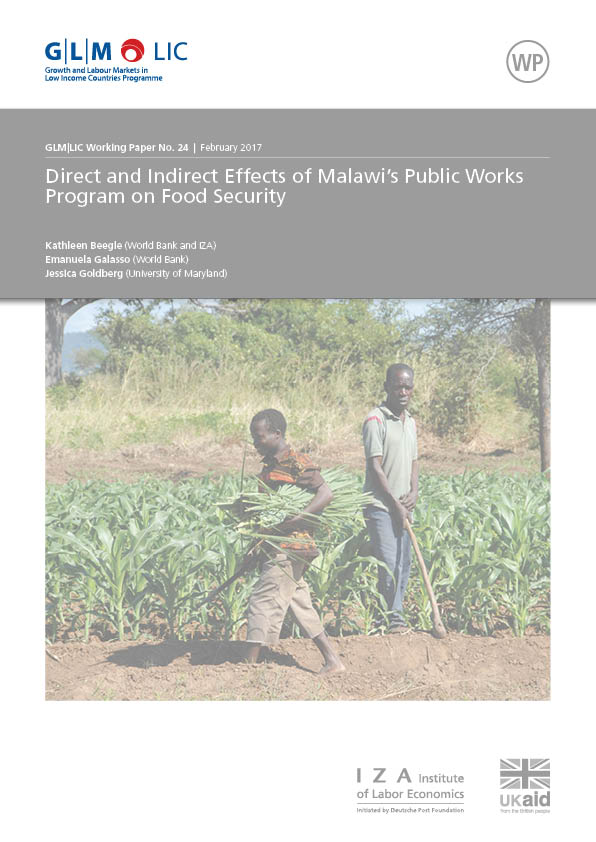Labor-intensive public works programs are important social protection tools in low-income settings, intended to supplement the income of poor households and improve public infrastructure. In this evaluation of the Malawi Social Action Fund, an at-scale, government-operated program, across- and within-village randomization is used to estimate effects on food security and use of fertilizer. There is no evidence that the program improves food security and suggestive evidence of negative spillovers to untreated households. These disappointing results hold even under modifications to the design of the program to offer work during the lean rather than harvest season or increase the frequency of payments. These findings stand in contrast to those from large PWPs in India and Ethiopia, and serves as a reminder that PWPs will not always have significant and measurable welfare effects.
